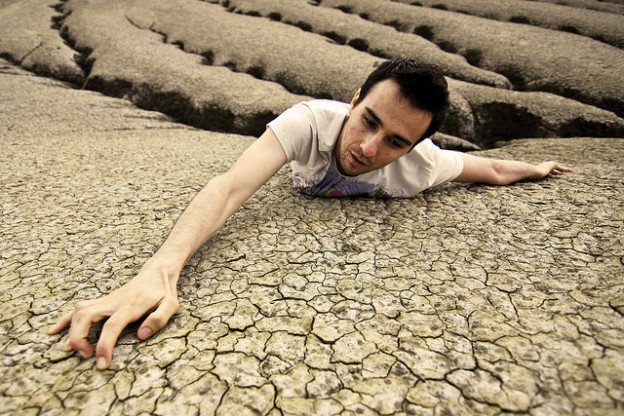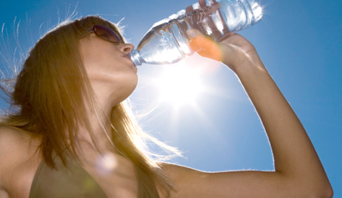
Water does more for us than just quench our thirst.
It’s one of the most vital substances for our body. Although drinking the recommended eight glasses of H2O a day seems difficult for most of us, not getting enough water can compromise our health because so many bodily functions rely on it. While we can withstand weeks without food, we can only survive five to seven days without water, but what would happen to our bodies if we stopped drinking water?
In their video, “What If You Stopped Drinking Water?” Mitchell Moffit and Greggory Brown of AsapSCIENCE explain how quickly we would begin to feel the effects of dehydration and what exactly those effects would be. Moffit and Brown explain the reason we feverishly look for water is because H2O is the most abundant molecule that makes up 65 percent of an adult. “As the universal solvent, it carries nutrients and hormones to the body, regulates body temperature, cushions the joints, and provides lubricants in our eyes,” according to the AsapSCIENCE video. However, as we produce 1.5 liters of urine every day, it is essential that the body replaces the liquid before it begins to shut down.
Completely depleting your body of water, even with fluids that contain water such as juice, coke, or tea, causes the brain to detect this change and creates the urge to drink something, hopefully water, immediately. When we don’t drink water, we begin to experience the initial signs of dehydration such as dry mouth, followed by dark urine with a strong odor. This signals the body’s attempt to conserve more fluids.
With one to two days of no fluids, we stop peeing altogether, have trouble swallowing, suffer from muscle spasms, and are more likely to experience nausea. The attention to digestion does not become a priority as victims become delirious and begin to suffer from severe brain function. Blood flow stops flowing to the skin, reduces heat loss, increases cork body temperature, and then gives us a bluish tint. Within three to five days, say Moffit and Brown, our organs and brain shut down.
Therefore, it is essential to keep our bodies hydrated with pure H2O, to keep our immune system functioning. As water is essential for our bodies, it’s important to fight for clean water availability for all.



